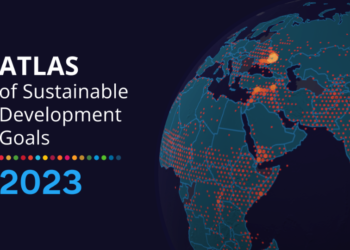The Global Corporate Sustainability Report 2024 provides invaluable insights into the practices and trends shaping the global market. This comprehensive report delves into the strategies, disclosures, and recommendations that are driving sustainability efforts among listed companies worldwide.
Disclosure Trends and Market Capitalization
In 2022, an impressive 86% of listed companies by market capitalization disclosed sustainability-related information on a global scale. Out of the staggering 43,970 listed companies with a total market capitalization of USD 98 trillion, 22% (9,600 companies representing USD 85 trillion) disclosed sustainability-related information.
Notably, two-thirds of these companies sought external service providers to assure the accuracy and reliability of their disclosed information.
Urgency in Managing Climate-Related Risks
The urgency to address climate-related risks and opportunities has propelled investor interest in companies’ greenhouse gas (GHG) emissions.
Globally, 77% of listed companies disclosed scope 1 and 2 GHG emissions, with a smaller proportion reporting scope 3 emissions. Encouragingly, 70% of listed companies disclosed GHG emission reduction targets, with a significant portion targeting 2030 as the milestone year.
Financial Materiality of Climate Change
Climate change is undeniably a financially material risk for a substantial portion of listed companies, representing two-thirds of global market capitalization.
Institutional investors, holding a substantial 41% equity share in the top 100 listed companies with the highest disclosed GHG emissions, wield considerable influence in driving emissions reduction initiatives.
R&D Investments for a Low-Carbon Economy
Despite the imperative to transition to a low-carbon economy, only a minority of listed companies disclose investments in research and development (R&D) for green technologies.
Regulators could play a pivotal role by mandating or recommending the disclosure of such information, enabling investors to assess companies’ potential contributions to a sustainable future.
Policy Recommendations for Enhanced Sustainability Reporting
The Global Corporate Sustainability Report 2024 offers several policy recommendations to bolster sustainability reporting practices:
- Flexibility in Disclosure Frameworks: Sustainability-related disclosure frameworks should adapt to the varying capacities of companies, ensuring inclusivity and relevance across diverse sectors.
- Interoperability of Standards: Standard-setters are urged to collaborate to enhance the interoperability of sustainability standards, thereby reducing compliance costs for companies adhering to multiple standards.
- Mandatory Assurance for Large Companies: Regulators in regions where voluntary assurance is common may consider mandating large listed companies to obtain assurance over their sustainability-related information, promoting transparency and accountability.
- Focus on GHG Emissions: Specific assurance requirements, particularly for GHG emissions, could be mandated where comprehensive assurance is impractical or prohibitively costly, ensuring the integrity of key sustainability disclosures.
- Executive Accountability: Investors and regulators should scrutinize mechanisms whereby executives unilaterally engage external auditors for sustainability-related assurance, ensuring proper oversight and governance.
- Scope 3 GHG Emissions Disclosure: Market participants and stakeholders should encourage the disclosure of scope 3 GHG emissions, fostering a more holistic understanding of companies’ environmental impacts.
- Promoting Green Technologies: Regulators may advocate for the disclosure of information relevant to assessing companies’ potential contributions to green technology development, aligning corporate strategies with sustainability imperatives.
- Corporate Governance and Shareholder Engagement: Corporate boards play a crucial role in aligning lobbying activities with sustainability goals, enhancing shareholder engagement, and reinforcing corporate governance frameworks.
In conclusion, the Global Corporate Sustainability Report 2024 illuminates key trends, challenges, and opportunities in corporate sustainability reporting.
By adhering to best practices and embracing policy recommendations, companies can navigate the evolving sustainability landscape while contributing to a more resilient and equitable global economy.





